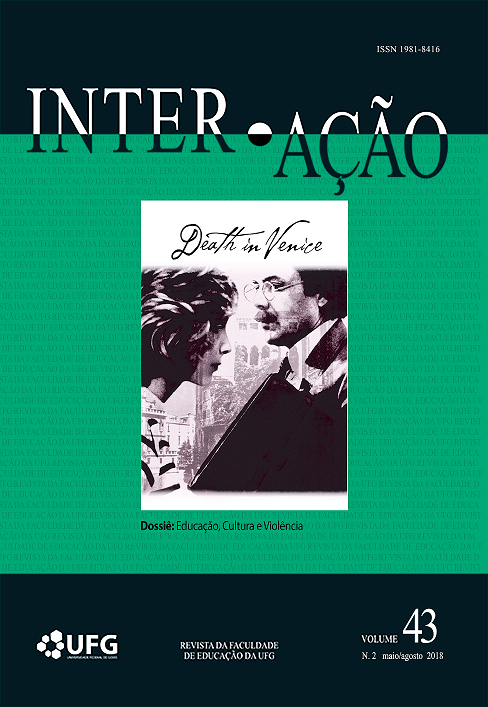A persistência do trote universitário e da violência no contexto educacional
DOI:
https://doi.org/10.5216/ia.v43i2.52526Abstract
O objetivo deste artigo é compreender, a partir da perspectiva da Teoria Crítica da Sociedade, como ocorrem os trotes universitários na Universidade Federal de Roraima (UFRR). Para a coleta de dados foram realizadas observações assistemáticas em trotes dos cursos de medicina e engenharia, e entrevistas com alunos pertencentes a diversos cursos da instituição que já participaram do trote. Foi possível constatar que o trote busca, em certa medida, se adequar ao modelo tradicional (marcado pelas situações vexatórias, violência psicológica, etc.) e os motivos pelos quais essa prática é defendida estão principalmente vinculados à adesão do indivíduo ao grupo. Os resultados da pesquisa permitiram a produção de um enredamento entre questões que, superficialmente, parecem não possuir conexões imediatas, mas que não podem ser ignoradas para se compreender a cultura do trote no contexto da universidade.
Downloads
Published
Versions
- 2026-02-02 (2)
- 2018-12-14 (1)
How to Cite
Issue
Section
License
Copyright (c) 2018 Inter Ação

This work is licensed under a Creative Commons Attribution-NonCommercial 4.0 International License.
Inter-Ação uses the Creative Commons Attribution 4.0 License for Open Access Journals (Open Archives Initiative - OAI) as the basis for the transfer of rights. Open access means making documents available on the Internet free of charge, so that users can read, download, copy, distribute, print, search, or link to the full text of documents, process them for indexing, use them as input data for software programs, or use them for any other lawful purpose, without financial, legal, or technical barriers.
Authors publishing in this journal agree to the following conditions:
1) Authors retain copyright and grant the journal the right of first publication, with the work simultaneously licensed under the Creative Commons Attribution License, which permits redistribution of the work with attribution and first publication in this journal.
2) Authors are permitted to enter into additional, separate agreements for non-exclusive distribution of the version of the work published in this journal (e.g., for publication in an institutional repository or as a book chapter), with attribution and first publication in this journal.
3) Authors are permitted and encouraged to publish and distribute their work online (e.g. in institutional repositories or on their home page) at any time before or during the editorial process, as this may generate productive changes as well as increase the impact and citation of the published work.















